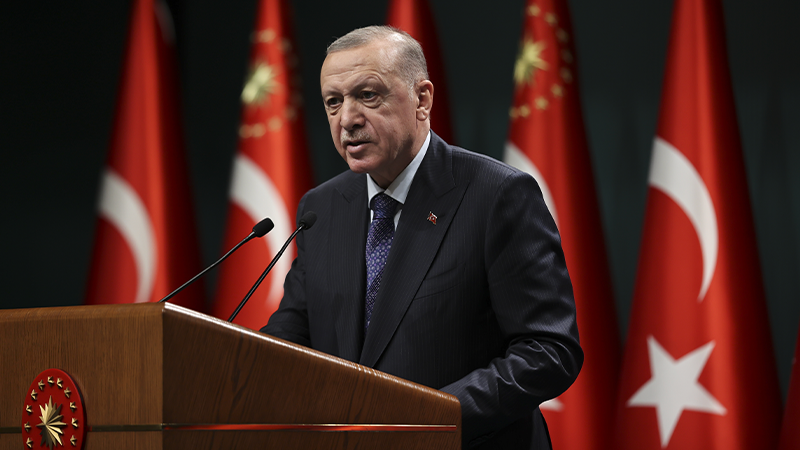President Tayyip Erdogan said he is prepared to drastically decrease Turkey’s inflation amid annual price rises that have exceeded 21 percent in the wake of his push for aggressive monetary easing that has sent the lira crashing.
Erdogan, in a Saturday meeting that was aired on Sunday, said that he had lowered Turkey’s inflation to around 4 percent before and that he plans to do it again soon.
Turkey’s new policy based on low interest rates is part of a successful “economic independence war”, Erdogan said. But most economists have called it reckless and have predicted that inflation will soar beyond 30 percent next year.
The lira hit a record low beyond 17 against the US dollar on Friday following fears of an inflationary spiral. At the low, the lira had lost some 55 percent of its value this year, including 37 percent in the last 30 days.
In Saturday’s meeting with African youth at a summit in Istanbul, Erdogan reiterated his unorthodox view that interest rates cause price hikes, adding inflation would hopefully fall soon.
“Sooner or later, just as we lowered inflation all the way to 4 percent when I came to power, we will lower it again. But, I will not let my citizens, my people, be crushed under interest rates,” Erdogan said.
Mounting criticism
Inflation fell to around 4 percent in 2011, before beginning to gradually edge upwards from 2017. It jumped 3.5 percent in November to 21.3 percent annually.
Many Turks have said a 50 percent hike in minimum wage announced by Erdogan on Thursday will be insufficient. The hike is widely expected to boost overall consumer price inflation by 3.5 to 10 percentage points.
Under pressure from Erdogan, the central bank has cut rates by 500 basis points since September. Erdogan says the model will boost exports, employment, investments, and growth.
On Saturday, Turkey’s largest business group Tusaid called on the government to abandon the low rates policy and return to “rules of economic science”.
Opposition parties have accused Erdogan of causing one of Turkey’s biggest currency crises and called for immediate elections, while several polls have shown support for the president and his ruling AK Party at multi-year lows.
Numan Kurtulmus, Erdogan’s deputy at the AK Party, said the government was working to fix economic hardships but would never abandon the new policy.
Elections are scheduled for mid-2023. Erdogan, in power for 20 years, has said there will be no early election.
Middle EAST
